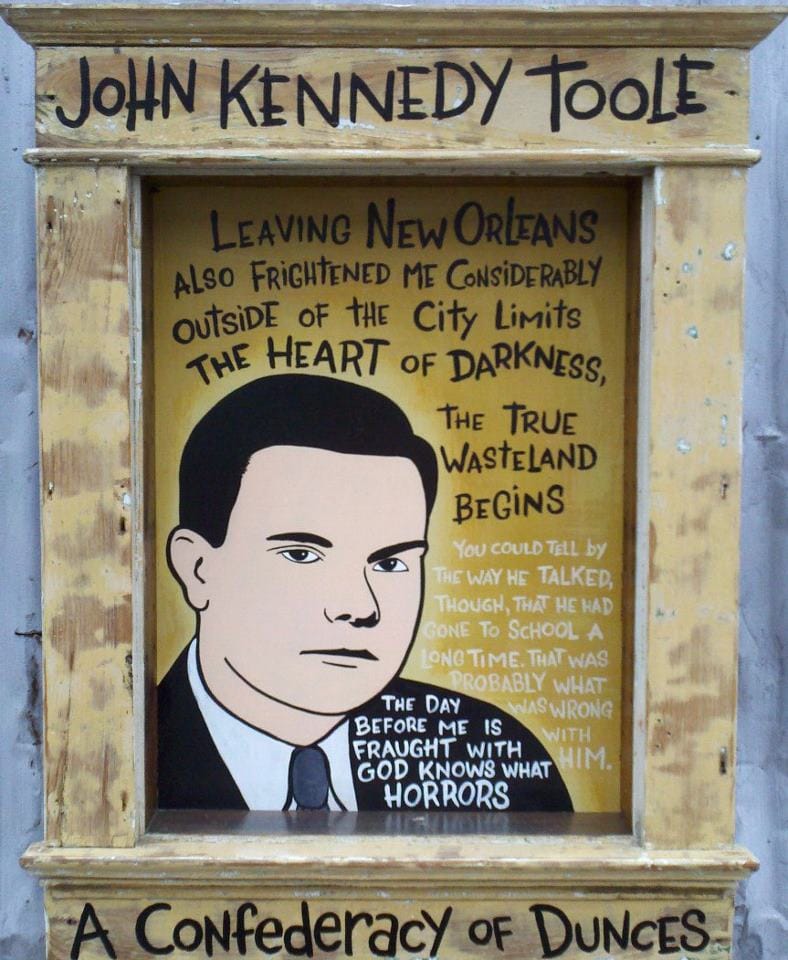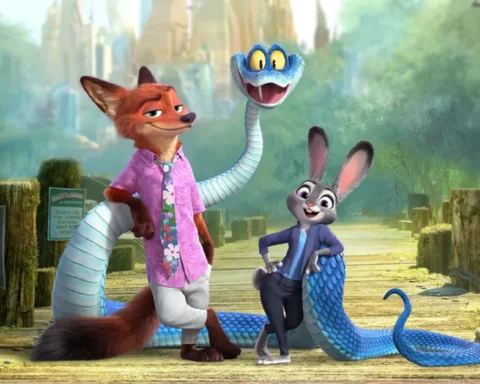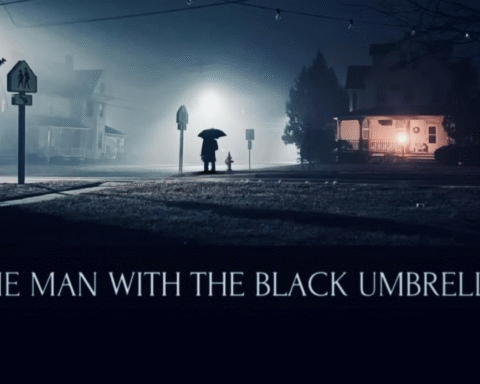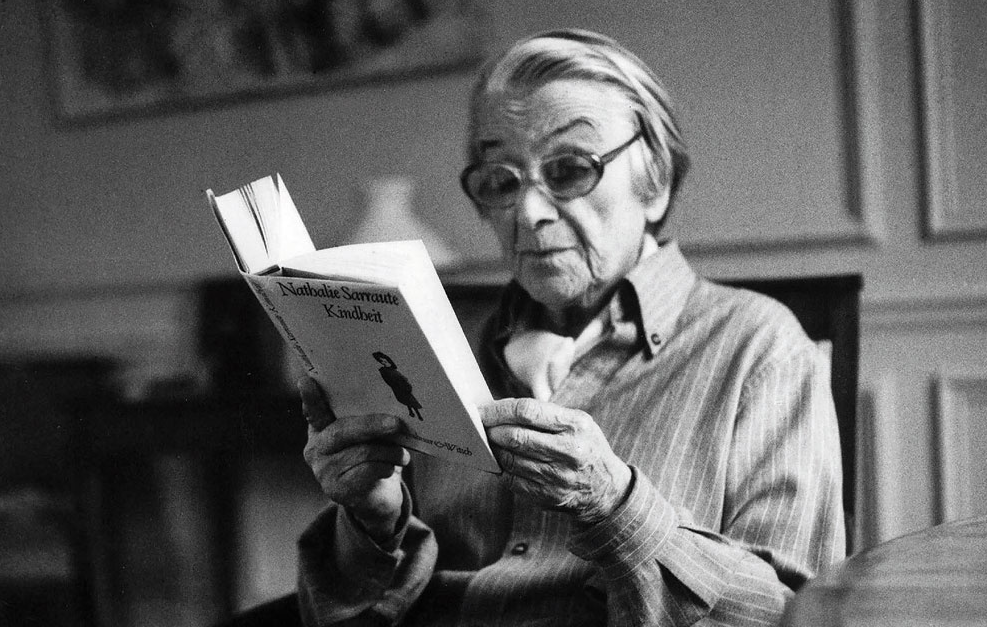John Kennedy Toole’s ‘A Confederacy of Dunces’ is a tour de force of tragicomic brilliance, a work that simultaneously skewers and sympathizes with its characters in a manner befitting the best of dark humor. Set in the vibrant, decaying chaos of 1960s New Orleans, this posthumously published novel unveils the folly of humanity through its protagonist, Ignatius J. Reilly, whose grandiose intellect is as outsized as his physical presence. Toole’s narrative, drenched in cynicism and imbued with complex vocabulary, is a testament to the enduring absurdity of contemporary society and its myriad dysfunctions.
Ignatius J. Reilly is a grotesque caricature of the misunderstood genius, a figure who embodies the detritus of Western civilization. His disdain for modernity and his obsessive longing for a medieval past replete with “The Consolation of Philosophy” by Boethius are both amusing and pitiful. Here is a man out of time, railing against the inanities of a world that refuses to recognize his genius. His inflated self-worth, coupled with his utter ineptitude at navigating everyday life, mirrors the disillusionment of intellectuals who find themselves adrift in a sea of mediocrity.
The cast of characters orbiting Ignatius is a microcosm of societal dysfunction. From his overbearing mother, Irene, whose dependency and misplaced maternal devotion are both tragic and comedic, to the hapless Patrolman Mancuso, whose ineffectual attempts at law enforcement highlight the impotence of authority, Toole spares no one in his satirical vivisection. These characters, grotesque yet oddly endearing, are emblematic of a society that is simultaneously interconnected and fragmented, driven by self-interest yet bound by mutual dependency.

At the heart of ‘A Confederacy of Dunces’ is a scathing critique of contemporary societal issues. Ignatius’ struggles to find meaningful employment, culminating in his disastrous stint at Levy Pants, underscore the absurdities of the capitalist system. His subsequent venture into the world of hot dog vending is a descent into the absurd, a commentary on the indignities of the labor market and the farcical nature of the American Dream. Through Ignatius’ misadventures, Toole exposes the hollow promises of upward mobility and the dehumanizing effects of a society obsessed with productivity.
The novel’s dark humor is a powerful vehicle for its social commentary. Toole’s wit is razor-sharp, his prose dripping with irony and mordant observation. The interplay between highbrow intellectualism and lowbrow farce creates a narrative that is as intellectually stimulating as it is riotously funny. The tragicomic elements of the story are heightened by the author’s own tragic fate—Toole’s suicide before the novel’s publication casts a long shadow over the humor, imbuing it with a profound sense of melancholy.
Ignatius’ inflated view of himself as a misunderstood genius is both his greatest strength and his fatal flaw. His grandiose plans and schemes, whether in his abortive attempts at political activism or his ludicrous management of a hot dog cart, consistently end in disaster. Yet, through these misadventures, Toole paints a vivid picture of a man whose intellect is both a blessing and a curse. Ignatius’ diatribes against modernity, his scathing critiques of popular culture, and his vehement disdain for anything remotely contemporary resonate deeply in a world that often seems devoid of substance and meaning.

The novel’s setting, New Orleans, is itself a character, a city teeming with life, decay, and eccentricity. Toole’s vivid descriptions bring the city to life, capturing its unique blend of cultures, its inherent contradictions, and its slow, inexorable decline. New Orleans is a fitting backdrop for Ignatius’ escapades, a place where the past and present collide in a chaotic dance, mirroring the protagonist’s own internal struggles.
Toole’s exploration of family dynamics, particularly the relationship between Ignatius and his mother, Irene, offers a darkly humorous yet poignant commentary on dependency and control. Irene’s transformation from a doting, enabling mother to a woman determined to assert her independence is a subtle yet powerful subplot that underscores the novel’s broader themes of freedom and confinement. Ignatius, for all his intellectual posturing, is ultimately a prisoner of his own mind, while Irene, in her simplicity, finds a measure of liberation.
The supporting characters, from the tragicomic Burma Jones, a black janitor whose sharp wit and keen observations cut through the hypocrisy of the white establishment, to the hapless Myrna Minkoff, Ignatius’ pseudo-intellectual nemesis and would-be savior, add depth and richness to the narrative. Each character, in their own way, reflects the broader societal issues that Toole seeks to address—race, class, gender, and the often-absurd pursuit of happiness.
In Ignatius J. Reilly, Toole has created an anti-hero for the ages, a figure whose grandiose delusions and scathing critiques of society are as relevant today as they were in the 1960s. Ignatius’ disdain for modernity, his rejection of societal norms, and his unrelenting quest for intellectual purity resonate with contemporary readers who feel alienated by the superficiality of modern life. His character is a dark mirror, reflecting the frustrations of those who yearn for authenticity in a world increasingly dominated by artifice.

‘A Confederacy of Dunces’ is more than a comedic masterpiece; it is a profound meditation on the human condition, a biting critique of societal norms, and a celebration of the individual against the backdrop of a conformist world. Toole’s cynical, intellectual narrative challenges readers to confront the absurdities of their own lives and to find humor in the midst of despair. In an age where the line between genius and madness is often blurred, Ignatius J. Reilly stands as a poignant reminder of the price of true intellectual freedom.
The novel’s enduring appeal lies in its unflinching portrayal of human folly and its unwavering commitment to dark humor. Toole’s ability to blend highbrow literary references with slapstick comedy, to juxtapose profound philosophical musings with absurd plot twists, creates a reading experience that is both intellectually rewarding and riotously entertaining. ‘A Confederacy of Dunces’ is a testament to the power of literature to illuminate the human condition, to expose the absurdities of society, and to celebrate the resilience of the individual spirit.
In conclusion, John Kennedy Toole’s ‘A Confederacy of Dunces’ is a masterwork of dark humor and social commentary. Through the larger-than-life character of Ignatius J. Reilly, Toole offers a scathing critique of modern society, a poignant exploration of the human condition, and a celebration of the absurd. The novel’s blend of intellectual rigor and comedic genius ensures its place as a timeless classic, a work that continues to resonate with readers and inspire both laughter and reflection.









